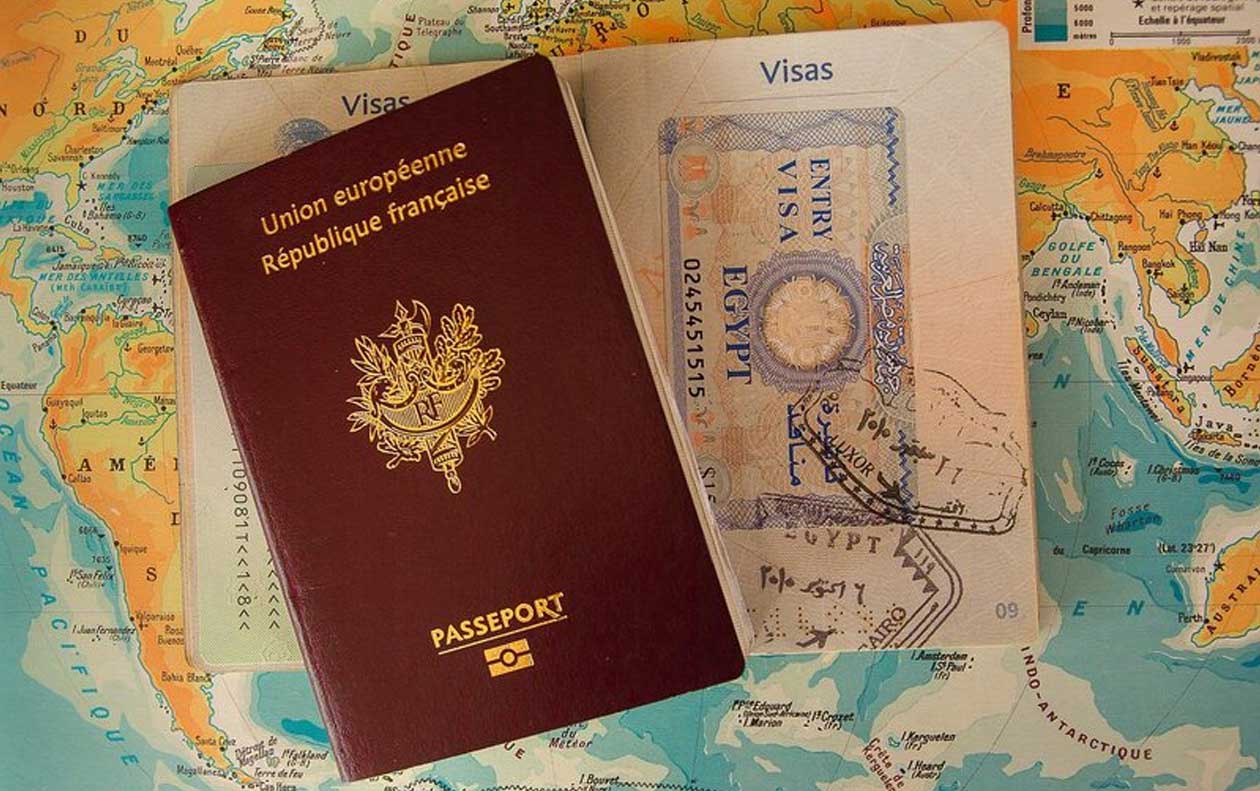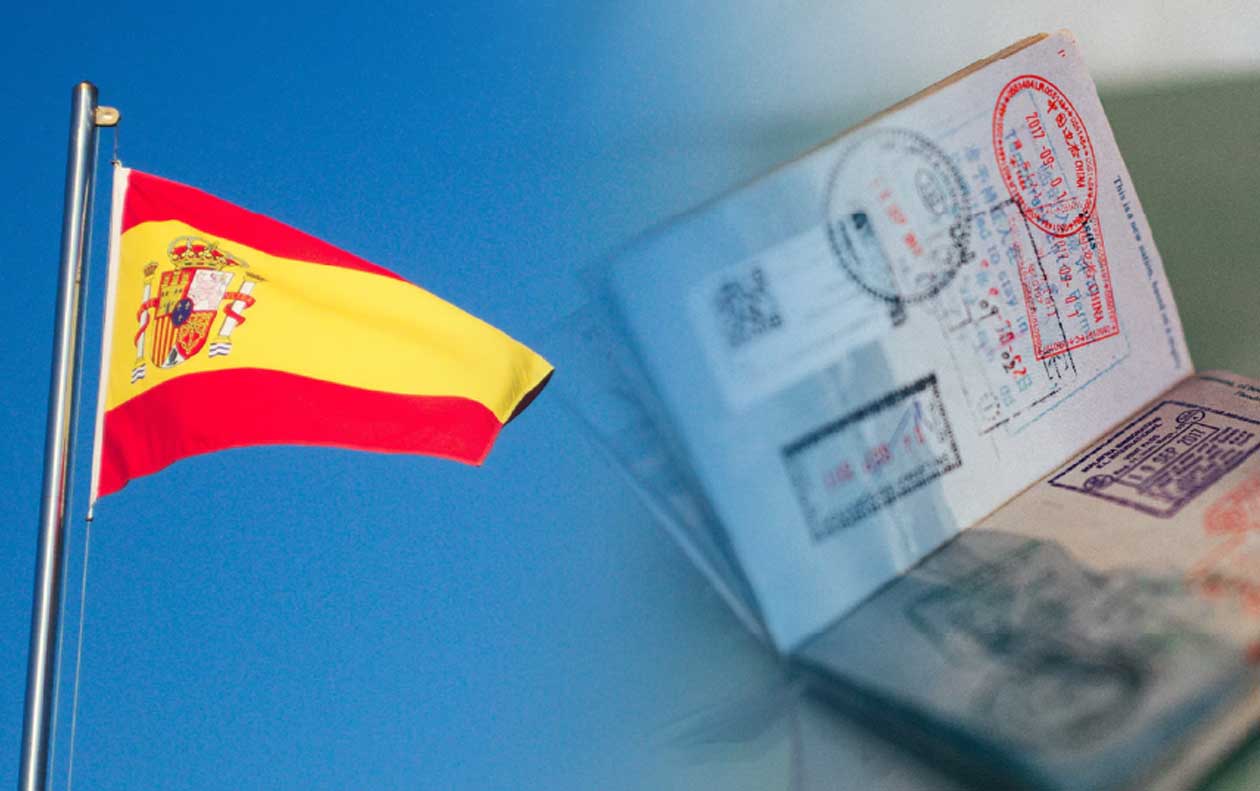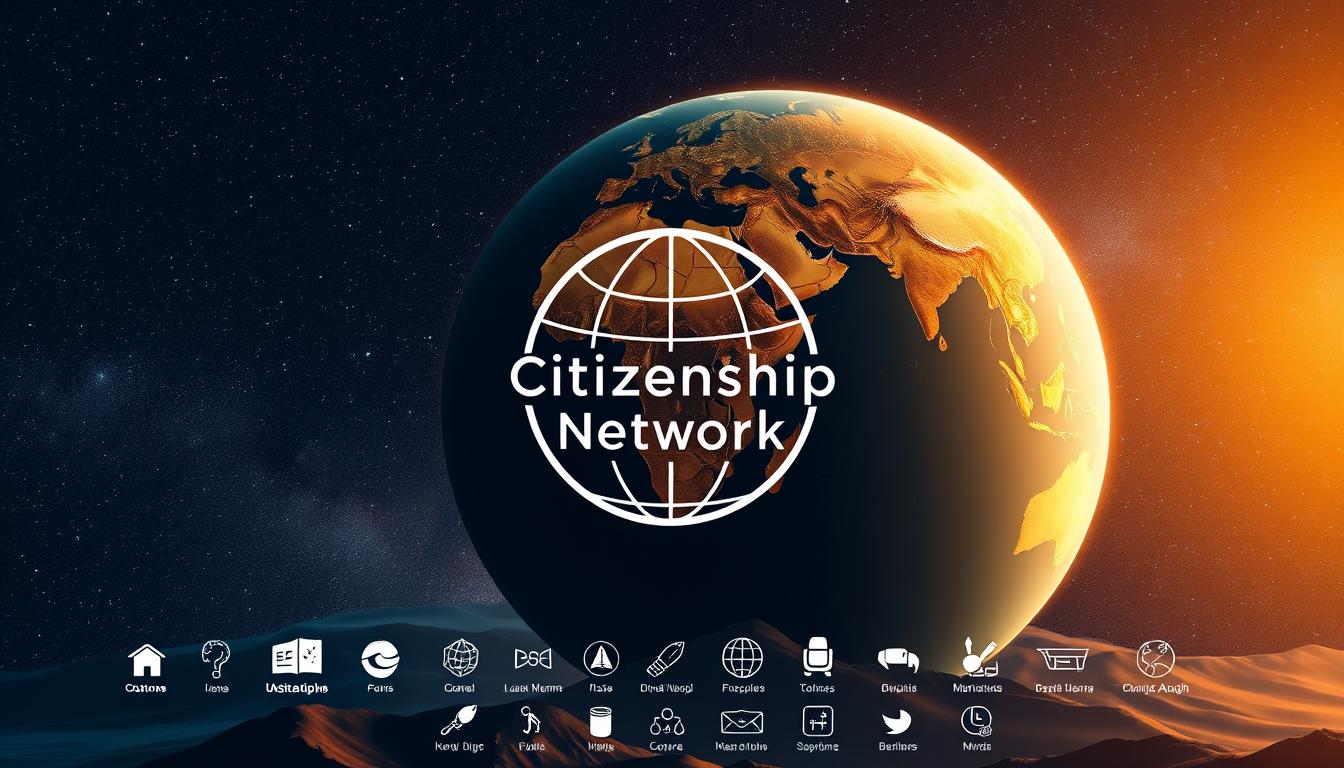The world of work is changing fast, thanks to remote work. More companies are moving to flexible work setups. This means people can work and travel at the same time. This guide will show you the best ways to do this with global nomad visa options.
It uses the latest reports and studies to help you understand work and travel visas. Remote work is becoming more common, making this guide very useful. You’ll learn about the best visas, their perks, and how to get them. Start your journey to mix work with travel and see new places.
Key Takeaways
- Digital nomad visas are becoming increasingly popular as remote work opportunities grow.
- This guide provides essential insights on global nomad visa options and international work and travel visas.
- Understand the benefits and requirements of digital nomad visas worldwide.
- Stay informed on the application process, eligibility, and financial prerequisites.
- Get tips for successful visa application and explore top destinations offering these visas.
What is a Digital Nomad Visa?
Remote work is getting more common. *Digital nomad visas* are now a popular choice for those who want to work abroad legally. These visas let digital nomads travel and work in different countries without usual visa limits.
Definition and Purpose
A digital nomad visa lets remote workers live in a foreign country for a long time. They can keep working for a company in another country. This visa makes it easier for digital nomads, giving them legal clarity and avoiding tourist visa problems.
Benefits of a Digital Nomad Visa
One big plus of a *digital nomad visa* is the freedom to move around. It lets remote workers experience different cultures while keeping a steady work schedule. Plus, these visas often have longer validity periods, which means more security and peace of mind. They also come with perks like simpler tax rules and better access to local services.
Eligibility Requirements
The rules for getting a digital nomad visa vary. But, you usually need to show proof of remote work, meet a minimum income, and have health insurance. This makes sure digital nomads can afford to live abroad and get the healthcare they need.
Top Countries Offering Digital Nomad Visas
More people want to work from anywhere, leading countries to create special visas. These visas let digital nomads live and work in new places. Let’s look at four top countries for digital nomads, each offering unique visa benefits.
Estonia
Estonia is a leader with its remote work visa. It has a Digital Nomad Visa for up to a year. Estonia’s digital setup and e-residency program make it great for digital nomads.
Portugal
Portugal is known for its beauty and low cost of living. It has the D7 Visa for those with passive income or remote jobs. This visa is popular for its easy application and chance to stay longer than a year.
Croatia
Croatia’s remote work visa is very popular. It allows stays of up to a year, perfect for those who love the Mediterranean. You need proof of remote work and meet income rules to apply.
Mexico
Mexico is a top choice with its Temporary Resident Visa for remote workers. Stays can be from six months to four years. Mexico’s culture, climate, and communities are ideal for remote workers looking for a deep experience.
How to Apply for a Digital Nomad Visa
Getting a digital nomad visa is easy if you know what to do. This guide will help you with the application, needed documents, and tips for success.
Application Process Overview
The application is usually done online on official sites. You need to fill out forms, share personal and work details, and pay fees. Getting help from immigration experts can be very helpful.
Required Documentation
The documents needed can change by country. But, you usually need proof of income, a valid passport, health insurance, and sometimes a letter of intent. Make sure all documents are current and clear. Any mistakes can slow things down.
Tips for a Successful Application
To boost your chances, be accurate and professional in your application. Show your remote work experience and financial stability. Look for advice on forums from other digital nomads. Also, keep up with any changes in visa rules.
Financial Requirements for Nomad Visas
Understanding the financial needs for nomad visas is key for digital nomads. Each country has its own rules for income, currency, and financial proof. We’ll cover the main points to help you.
Income Thresholds by Country
Countries with digital nomad visas set a minimum income. For example, Estonia needs a monthly income of at least €3,504. Croatia requires HRK 16,142 per month. These rules help ensure you can support yourself abroad.
Currency Considerations
The currency exchange rate matters when applying for a nomad visa. For instance, the income needed for Croatia’s visa in U.S. dollars can change with the exchange rate. Keeping up with currency changes is crucial to meet the financial criteria.
Bank Statements and Proof of Earnings
Most countries ask for bank statements and proof of earnings to check your financial stability. These documents must show you meet the income requirements. Make sure your bank statements are current and show regular income to support your application.
Duration of Stay on a Digital Nomad Visa
When you apply for a digital nomad visa, knowing how long you can stay is key. These visas are flexible but have different lengths. It’s important to understand how long they last and if you can renew them for long-term stays.
Typical Visa Lengths
Most digital nomad visas last from six months to two years. For example, Estonia’s visa is good for 12 months. Portugal’s visa can last up to a year, with the chance to extend it.
Countries like Croatia offer visas for up to a year. You might be able to renew them.
Renewal and Extension Options
Renewing your digital nomad visa is usually easy, but rules can change. Many places let you renew if you still meet income and residency needs. It’s also important to check your tax obligations to follow local laws and enjoy the visa’s benefits.
Key Considerations Before Applying
Before you start applying for a digital nomad visa, it’s important to know a few things. You need to understand the rules about work, taxes, and health insurance. This knowledge helps you follow the *digital nomad employment laws* smoothly.
Employment Restrictions
It’s key to know the *digital nomad employment laws* if you want to work abroad. Every country has its own rules for remote work. Some might ask for proof you won’t look for a job locally to protect their job market.
Always check the specific rules of the country you’re planning to visit. This way, you can avoid any legal problems.
Tax Implications
Taxes are another big thing to think about. The tax rules for digital nomads vary a lot from country to country. Knowing these rules can help you avoid big surprises with your money.
Some countries have deals to avoid double taxation, but others might make you pay taxes in both places. Talking to a tax advisor can help you understand your situation better.
Health Insurance Requirements
Health insurance is also very important. Many visa programs for digital nomads need you to have health insurance. The policies can be different, with some needing international coverage and others local plans.
Make sure to check the insurance policies of global providers. This way, you can be sure your insurance meets the visa requirements.
For a detailed overview of how real estate investment can lead to European residency, read our post on Spain Golden Visa: Unlocking European Residency Through Real Estate Investment.
Popular Digital Nomad Destinations
Exploring the latest trends, digital nomad hotspots offer unique chances for remote workers. These cities are not just great for work. They also provide a rich cultural experience.
Bali, Indonesia
Bali is a top digital nomad hotspot. It has great infrastructure, affordable living, and a lively community. Ubud and Canggu are favorites among remote workers. Bali’s fast internet makes it a top choice for remote work.
Tbilisi, Georgia
Tbilisi is a favorite among digital nomads. It combines historic charm with modern amenities and low living costs. Georgia’s welcoming visa policies also make it attractive.
Buenos Aires, Argentina
Buenos Aires draws digital nomads with its rich culture and vibrant atmosphere. It offers affordable housing, co-working spaces, and a growing expat community. Fast internet and cafes for remote workers add to its appeal.
Community and Networking Opportunities
Becoming a digital nomad opens a world of community and networking opportunities. These can greatly improve your personal and professional life. By connecting with other remote workers, you can make lasting friendships and business partnerships.
Online Communities
Digital nomad networking starts online. Many forums, social media groups, and platforms exist for nomads to share tips and job opportunities. Sites like Nomad List and Reddit’s Digital Nomad community are great for finding others with similar interests.
Online communities are great for learning about the best co-working spaces and local events. They’re also a place to ask questions and get advice from those who have been there.
Local Meetups and Co-Working Spaces
While online connections are important, meeting in person has its own benefits. Local meetups through Meetup.com or Facebook Events let digital nomads share experiences and build networks.
Co-working spaces also offer huge benefits. They are the heart of the local digital nomad scene. Places like WeWork, Hubud, or Impact Hub in Bali, Lisbon, or Dubai are perfect for making new professional connections and collaborations.
Cultural and Lifestyle Adjustments
Adapting to a new culture is a big part of being a digital nomad. It involves overcoming language barriers and understanding local customs. These steps are key to a smooth transition and successful integration.
Language Barriers
Language is often the first challenge for digital nomads. While English is common in many cities, learning the local language helps a lot. Simple phrases and common expressions can make a big difference in daily life.
Spending time on language courses or using language apps can help a lot. It makes connecting with the local community easier. Good communication makes your work and personal life abroad better.
Local Customs and Traditions
Knowing and respecting local customs and traditions is vital. Every culture has its own practices and norms. For digital nomads, it’s important to observe and adapt to these differences.
Join cultural exchange programs or attend local events to get involved. This helps you embrace the local lifestyle and promotes mutual respect. Reading blogs by experienced nomads or taking cross-cultural training can also offer valuable insights.
Successful cultural integration for nomads requires an open mind and a willingness to learn. Embrace the journey and let these experiences make your digital nomad life richer.
Future of Digital Nomad Visas
The world of remote work is changing fast. Countries are now looking at digital nomad visas in a new light. They want to keep up with these changes.
Trends and Developments
More countries are creating special visas for digital nomads. They see the economic benefits of attracting remote workers. This means offering visas that are more flexible and appealing.
Studies show these visas have a positive impact on the economy. They look like they’re here to stay.
Potential Changes in Legislation
As more people work remotely, laws for nomads will likely change. We might see easier application processes and clearer tax rules. There could also be better protections for workers abroad.
International agreements might help standardize visa rules. This would make it easier for remote workers to understand the law. Immigration experts believe these changes will meet the needs of the global digital workforce. They think the future of remote work visas looks bright.


Stories from Successful Digital Nomads
The path to becoming a digital nomad is unique for everyone. Our collection of digital nomad success stories shows how remote workers succeed around the world.
Interviews and Insights
We talked to well-known digital nomads like Nomadic Matt and Esther Jacobs. They’ve traveled for years and know how to work remotely well. Their advice helps others deal with the challenges of this lifestyle, like staying productive and finding support while traveling.
Lessons Learned
Every digital nomad has lessons to share. Pieter Levels, who created Nomad List, says being adaptable and always learning is crucial. Digital entrepreneur Courtney Carver also stresses the need to simplify your life for more freedom and focus. These insights from remote workers are great tips for those wanting to join the nomadic community.
Our readers share similar experiences, showing the mix of freedom and responsibility in being a digital nomad. Their stories are invaluable for those just starting out.
Resources for Aspiring Digital Nomads
Starting a digital nomad life needs good resources and tools for remote work. Whether you’re looking for your next travel spot or want to boost your work efficiency, the right tools matter a lot. Here, we’ll look at key websites, forums, and tools to help you on your digital nomad path.
Websites and Forums
The web is full of great sites for digital nomads. Sites like Nomad List give you the lowdown on the best places to live and work remotely. They cover costs, internet speeds, and safety. Also, Reddit and Quora have forums where seasoned nomads share advice, answer questions, and talk about remote work trends.
Tools for Remote Work and Travel
Having the right tools for remote work is key to staying productive while traveling. Trello and Asana are top picks for managing projects and staying organized. Slack makes team communication smooth, even when you’re far apart. For planning trips, use Skyscanner and Airbnb to find great flights and places to stay. These tools are made for digital nomads, helping you work well from anywhere.
 +49 175 370 2510
+49 175 370 2510

0 Comments